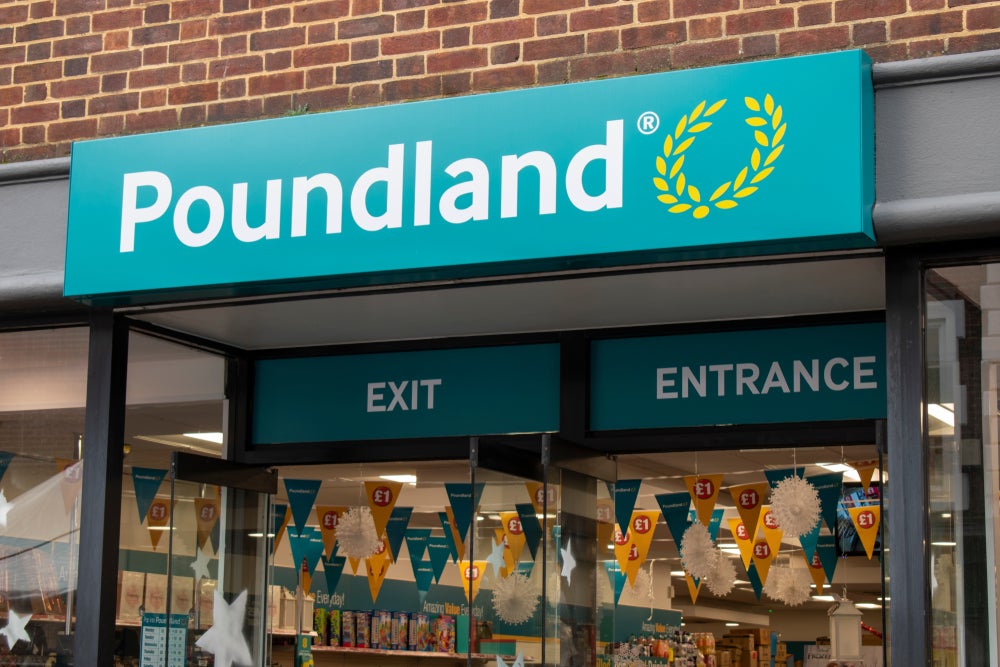After the continued poor performance of key discounters, notably B&M and Poundland, the future of UK retail value looks uncertain. Numerous factors are at play in this underperformance, including shifting consumer priorities and the impacts of major grocers’ loyalty scheme discounts, tempting shoppers to purchase from additional categories while doing their food shops and reducing the appeal of the discounters. Additionally, as the UK emerges from the cost-of-living crisis, discounters are relied on less as consumers begin to feel better off due to wage growth and lower inflation.
The worst performing discounter in the UK has been Poundland, whose like-for-like (LfL) ) sales fell by an alarming 7.3% in the first quarter (Q1) of the financial year 2024/25 (FY24/25) up to 31 December 2024. This followed a fall of 3.6% in LfL sales in FY2023/24. The figure has been dragged down by the retailer’s switch to Pepco-sourced general merchandise and clothing lines, which have not resonated with shoppers due to the lack of brand equity of the Pepco name in the UK. However, in Q1 the retailer also reported declines in the fast-moving consumer goods categories, indicating that its struggles are not isolated to the Pepco brand.
Meanwhile, B&M saw UK LfL sales fall 2.8% in its Q3 to 28 December, after negative LfLs in the first half of the year as it faced intense competition from Tesco’s Clubcard prices due to its food focus. Given that food inflation was just under 3% in 2024, boosting sales growth, and that demand for health and beauty is strong, declining sales are concerning and indicate that its propositions are not resonating with shoppers.
Consumers switch in search of value and quality
Discounters that provide consumers with the opportunity to trade up seem to be the exception to this malaise, with Lidl’s impressive Christmas trading results boosted by its premium ranges. Most discounters, however, do not offer such ranges, and have seen consumers switch to mid-market players as they place more emphasis on value for money and quality. Home Bargains seems to be an exception to the trend so far, with an impressive 11.7% rise in sales in the year ending June 2024 while its store numbers grew 3.9%, implying decent LfL sales growth.
In apparel, Primark saw its LfL sales in the UK fall by a disappointing 6.4% in the 16 weeks to 4 January 2025. Its performance will have been dampened by the lack of a home delivery proposition in a period marred by poor weather and storms, and it may also have lost out to consumers trading up to the likes of M&S, which has invested in its value and quality credentials.
Grocers beat discounters on convenience
Mid-market retailers such as Dunelm, Marks & Spencer and Next have outperformed due to investments in their propositions, putting pressure on value players and persuading shoppers to trade up. This contrasts with previous periods of economic uncertainty in which the mid-market was squeezed from both directions by value and premium players. The appeal of these players points to the importance of factors beyond low price – notably quality, value for money and convenience. These brands play into these factors, for example with their tiered price architectures, allowing consumers to easily trade up or down and contributing to their reputations for quality. This is something Next has recognised, stating in May 2024 that it was investing in products at the top end of its own-brand price architecture. These three retailers have also invested in their style credentials, promoting value for money and providing another point of difference from the discounters.
The importance of convenience, due to store locations or the ability to fulfil multiple shopping missions in one trip, is something from which the discounters should benefit. However, they have been beaten by the grocers on this, as well as by retailers with established online propositions —something that Dunelm, M&S and Next all offer.





